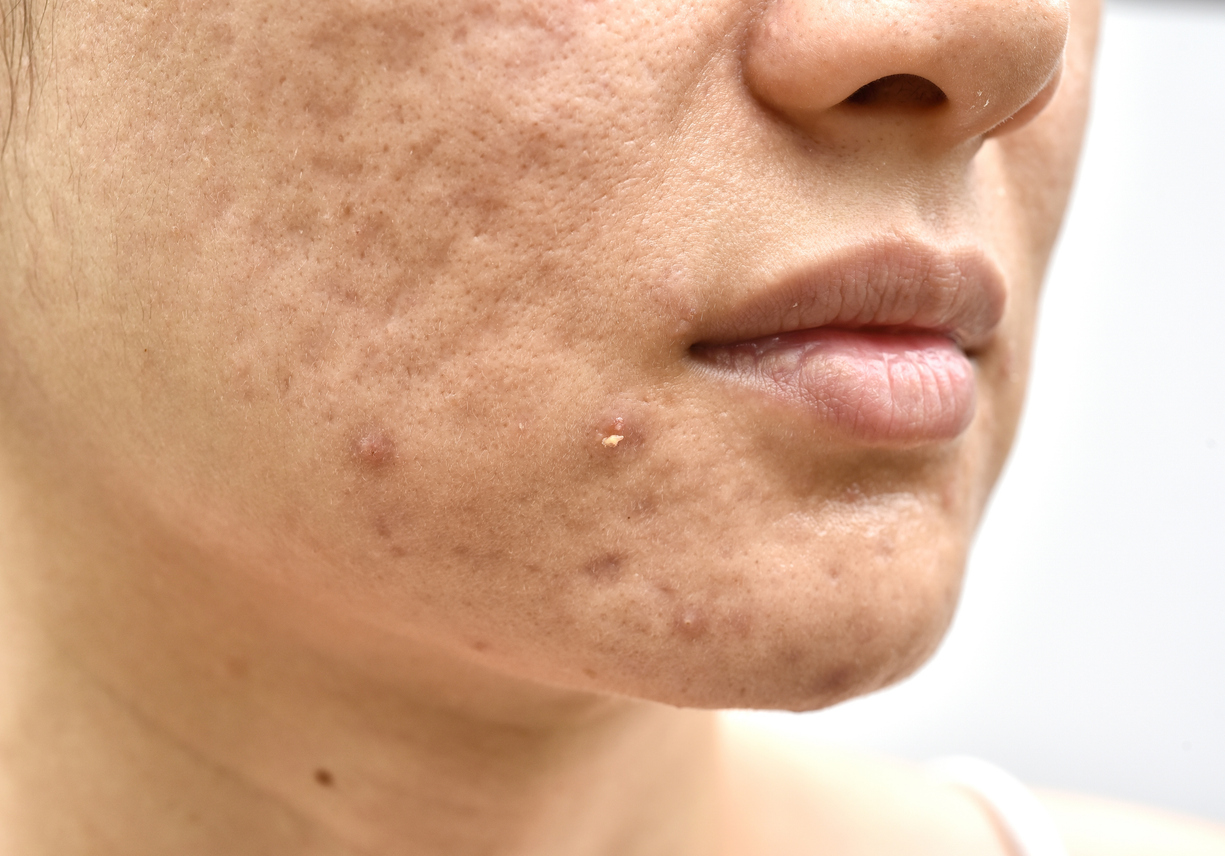Acne scars form due to an abnormal healing response in the skin following an inflammatory acne lesion. When acne lesions penetrate the skin deeply, they damage the tissue beneath the surface. The body attempts to repair this damage by producing collagen, but this process can sometimes go wrong. If too little collagen is produced, atrophic scars (ice-pick, boxcar scars, rolling scars) form, leaving depressions in the skin. On the other hand, if the body produces too much collagen, hypertrophic or keloid scars (which are raised above the skin surface) will develop. Managing acne early and minimizing inflammation is key to reducing the likelihood of scarring.


Fractional lasers, such as ablative CO2, UltraClear (laser coring), Picoway Fractional, and Fraxel 1550, work by treating specific "fractions" of the skin surface using laser columns tailored to the wavelength. A laser specialist can adjust the power, depth, and fraction size to deliver optimal results with minimal downtime, ensuring the treatment is precise and suited to each patient's skin type and condition. At Scars and Lasers, we have access to a wide range of fractional lasers, with over a dozen different devices, allowing us to choose the best option based on the specific needs and skin colour of each patient.

The ideal treatment for acne scars depends on several factors, including the type of scars, your skin type (ethnic origin), and the amount of downtime you can accommodate. For superficial scars like boxcar and shallow icepick scars, lasers are often an appropriate adjunctive treatment. Lasers can help improve skin texture and promote collagen production, aiding in the gradual reduction of these types of acne scars.

Fillers are highly effective for treating atrophic and depressed acne scars. One of the key benefits of fillers is the immediate improvement they provide, with no downtime required. Depending on the severity of the scars, some patients may need 2-3 sessions to achieve optimal results, while others may only require a single treatment. Fillers offer a quick, minimally invasive solution for restoring skin volume and smoothing out depressed areas caused by acne scars.